Gain Clarity, Unlock Potential
Psychological assessments help individuals, families, and professionals understand cognitive abilities, emotional health, and behavioral challenges through evidence-based testing. Whether you or a loved one are experiencing difficulties in learning, attention, emotional regulation, or workplace performance, assessments provide valuable insights for accurate diagnosis, personalized interventions, and self-improvement.

Comprehensive Psychological Assessments We Offer
Personality Assessments
Gain a deeper understanding of personality traits, strengths, and areas for growth.
Cognitive & Neuropsychological Assessments
Evaluate memory, problem-solving, and cognitive functioning due to neurological conditions or cognitive decline.
Emotional & Behavioral Assessments
Assess mood disorders, emotional regulation, and behavioral challenges affecting daily life.
ADHD & Attention Issues Assessments
Identify ADHD or other attention-related difficulties for adolescents and adults.
Learning Disabilities & Academic Performance Testing
Diagnose dyslexia, dyscalculia, and other learning difficulties affecting academic success.
Dementia & Alzheimer’s Disease Assessments
Evaluate cognitive decline, memory loss, and early signs of dementia for appropriate care planning.
Concussions & Traumatic Brain Injury Assessments
Assess cognitive impact post-head trauma to guide rehabilitation, recovery, and return to play decisions.
Pre- & Post-Surgical Psychological Assessments
Psychological evaluations for procedures like bariatric surgery, brain surgery, or organ transplant surgeries.
Sports Injury / Cognitive Fitness Assessments
Evaluate cognitive health for athletes recovering from injuries or aiming to optimize performance.
Autism Spectrum & Neurodiversity Testing
Comprehensive assessments for Autism Spectrum Disorder (ASD) and neurodivergent traits.
Giftedness & Intelligence Testing
Measure IQ levels, problem-solving abilities, and creativity for academic and career planning.
Aviation & High-Risk Job Fitness Evaluations
Assess cognitive functioning and psychological readiness for professionals in high-stakes roles such as pilots, engineers, and surgeons.
Who Benefits from Psychological Assessments?
Our assessments are designed for:
- Adolescents – Struggling with learning difficulties, attention issues, or behavioral challenges.
- Adults & Professionals – Seeking career guidance, cognitive evaluations, or emotional wellness support.
- Elderly Individuals – Needing memory and cognitive assessments for dementia screening.
- Employers & Educators – Supporting employees and students with personalized strategies for performance improvement.
We offer assessments in English, Arabic, French, Hindi, Urdu, Farsi, and Finnish ensuring accessibility to Dubai’s diverse population.
Take the First Step Toward Clarity
Schedule a psychological assessment in Dubai by finding a therapist, meeting our assessment specialists, or booking an appointment by using the buttons below.
Relevant Reading
Adolescents and adults experiencing unexplained, ambiguous, or distressing changes in their cognitive, behavioral, and/or physiological functioning can benefit from these assessments.
Dr. Clarice helps clients and healthcare providers/educators understand the effect of brain-based issues on these functions:

(verbal expression and comprehension)
(e.g., planning and impulse control)
(thoughts, behaviors, and mood)
Dr. Clarice Mendonca-King, clinical psychologist and clinical neuropsychologist at MapleTree, is dedicated to offering thorough, patient-centered assessment options that address your specific needs. She offers a range of evaluative services, including:
- Cognitive profiling
- Psychological wellbeing screeners
- Neuropsychological assessments
- Psychoeducational assessments
- Personality/psychodiagnostic assessments
Assessments are used to:
Establish a cognitive baseline
(i.e. a person’s capabilities)
Identify levels of functioning
(including strengths and weaknesses)
Diagnosis & personalized plan
(considering profile and circumstances)
The Assessment Journey
Assessments may involve a combination of interviews, record reviews, observations, questionnaires, and the latest standardized tests.
Comprehensive assessments are conducted over at least three appointments:
(1)
CLINICAL INTERVIEW
1 hour
(2)
TESTING
2-6 hours
(3)
FEEDBACK
1 hour
Assessment FAQs for Patients
Assessments are billed on an hourly basis. Payments are due at the end of each appointment, and we help you use your insurance through a pay-and-claim process.
Many insurance providers in the UAE cover neuropsychological assessments, but the scope of coverage depends on your specific plan. Speak with you insurance provider to understand the scope and prerequisites for coverage.
Neuropsychological assessments are primarily conducted at the MapleTree Center. Initial interviews and
feedback sessions can be done online, and testing is conducted in-person at the clinic.
Doctors, such as Dr. Clarice Mendonca, who have completed advanced training clinical neuropsychology and
have the appropriate license to practice in Dubai and the country of the education, can competently offer
neuropsychological assessments.
Some of the standardized measures used include the latest versions of the Wechsler intelligence scale (WAIS-5,
WISC-5, and WASI-II), Comprehensive neuropsychological batteries (RBANS and NAB), academic achievement
tests (WIAT-4 and WRAT-5), memory tests (WMS-IV and CVLT-3), diagnosis-specific questionnaires (PHQ-9
and GAD-7, RAADS–R, ASRS) and personality measures (MMPI-3 and the Rorschach Inkblot Test).
Neuropsychological assessments facilitates early and accurate diagnosis. This includes determining the extent of
cognitive difficulties, if cognitive and behavioral changes are expected or not, and what affects your progress.
The results streamline intervention planning, which saves time, energy, and costs, and enables long term gains.
Brain scans, like CT or MRI, show the structure of the brain but not how it functions. Behavioral testing is the
best way to assess brain performance and understand the causes of symptoms.
No preparation is needed. The tests assess your natural abilities, so it’s best to come as you are.
No, the testing is not invasive, and psychologists are not trained to read minds. The tests evaluate how your brain functions, not your thoughts.
Yes, take your medication as usual on the day of the assessment. This helps us assess your performance under
your normal treatment plan and evaluate the effects of your current interventions.
The report includes a summary of your cognitive profile, diagnoses (if applicable), and personalized
recommendations for treatment and strategies based on your needs.
The assessment results will help guide your healthcare decisions. They provide insight into which treatments and strategies are best suited for you.
With your consent, Dr. Clarice obtains your history from your care team, including physicians, caregivers, and
teachers. She may also share your results to maximize benefit from a multidisciplinary treatment approach.
Common conditions include:
Neurodevelopmental/neurodiversity conditions: ADHD, autism, learning disorders, giftedness
Dementias: Alzheimer’s, frontotemporal dementia
Head injuries: Concussions, traumatic brain injuries
Movement disorders: Parkinson’s, Huntington’s, Tourettes
Epilepsies and seizures, autoimmune conditions, and metabolic syndromes
Fitness testing: sports, aeromedical, surgeries (bariatric, DBS, organ transplant)
Preparation for the Testing Day
Sleep
Try to sleep well the night before
Medication
Take your medications as you usual
Arrival
Arrive at the clinic 30 minutes before your appointment.
Medical Aids
Bring your glasses, hearing aids, or any other supports
Food & Beverage
Feel free to bring your own food. Water is available at the clinic, and there are restaurants nearby
Caregivers
Caregivers are welcome to stay in the waiting area or return when the testing is done.
Post Test Fatigue
It is common to feel tired or exhausted after testing. Keep your schedule light and take time to relax afterwards
REQUEST APPOINTMENT
Please complete this form, Dr. Clarice will do her best to get back to you within 24 hours.





